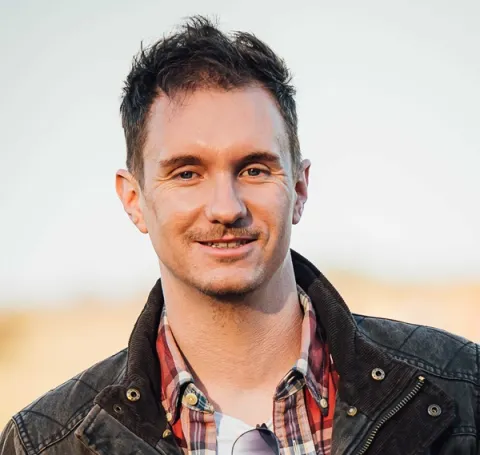About the project
This project investigates how civilians in Ukraine exposed to landmines, or living amid suspected contamination, adapt and maintain wellbeing under prolonged risk. Using mixed-methods research, it explores factors that promote or hinder resilience, coping strategies, and social cohesion, providing insights to inform civilian protection, risk education, and humanitarian response in conflict-affected settings.
Russia’s full-scale invasion of Ukraine has created one of the world’s most severe and complex explosive ordnance contamination crises. More than a third of Ukrainian territory is suspected of containing landmines. These weapons not only cause direct injury, but also limit mobility, disrupt agriculture and livelihoods, impede access to healthcare and education, and generate sustained psychological distress among civilians.
This PhD project will explore how civilians understand, navigate, and adapt to explosive risks, and how personal, social, and environmental resources support resilience under chronic uncertainty.
The student will combine qualitative and quantitative research approaches. Ethnographic fieldwork and qualitative interviews will capture lived experiences of landmine exposure, coping strategies, and risk negotiation among civilians living in contaminated areas in Ukraine. Quantitative analyses will draw on existing datasets and a forthcoming national survey of Ukrainian civilians, assessing exposure, resilience, safety behaviours, and wellbeing. Further, the student will design a follow-up survey to compare experiences across populations and link social, cultural, and economic factors with adaptive strategies.
The project will identify the key determinants of civilian resilience, wellbeing, and social cohesion in hazardous environments by integrating these approaches. Findings will inform risk-education programmes, demining strategies, and humanitarian interventions, while also contributing to the anthropology of war and peace and interdisciplinary resilience research.
The student will join the University of Southampton’s PIRS cohort, and will contribute to, and become a member of, the Centre for Eastern European and Eurasian Studies .
Additional technical training or support
Applicants should possess foundational skills in qualitative or quantitative research and a strong interest in interdisciplinary approaches to resilience. Additional training will cover mixed-methods integration and interdisciplinary resilience research.
Project delivery will be supported by access to existing datasets, collaborative networks with Ukrainian research partners, and cohort-based seminars, alongside training provided by the University’s Doctoral College in research ethics, data management, and public engagement.
References
IOM Ukraine & Neighborung Countries 2022-2024: Two Years of Response
In Ukraine, tackling mine action from all sides to make land safe again
Brackstone, K., Denny, J., Wild, H., Overton, I., Buchko, K., & Batchelor, J. (2025). Landmine exposure and hearing impairment among war-affected Ukrainian civilians: Exploring the role of PTSD symptoms as a contributory pathway. Manuscript under review at Journal of Aggression, Maltreatment & Trauma (please email for a copy)

